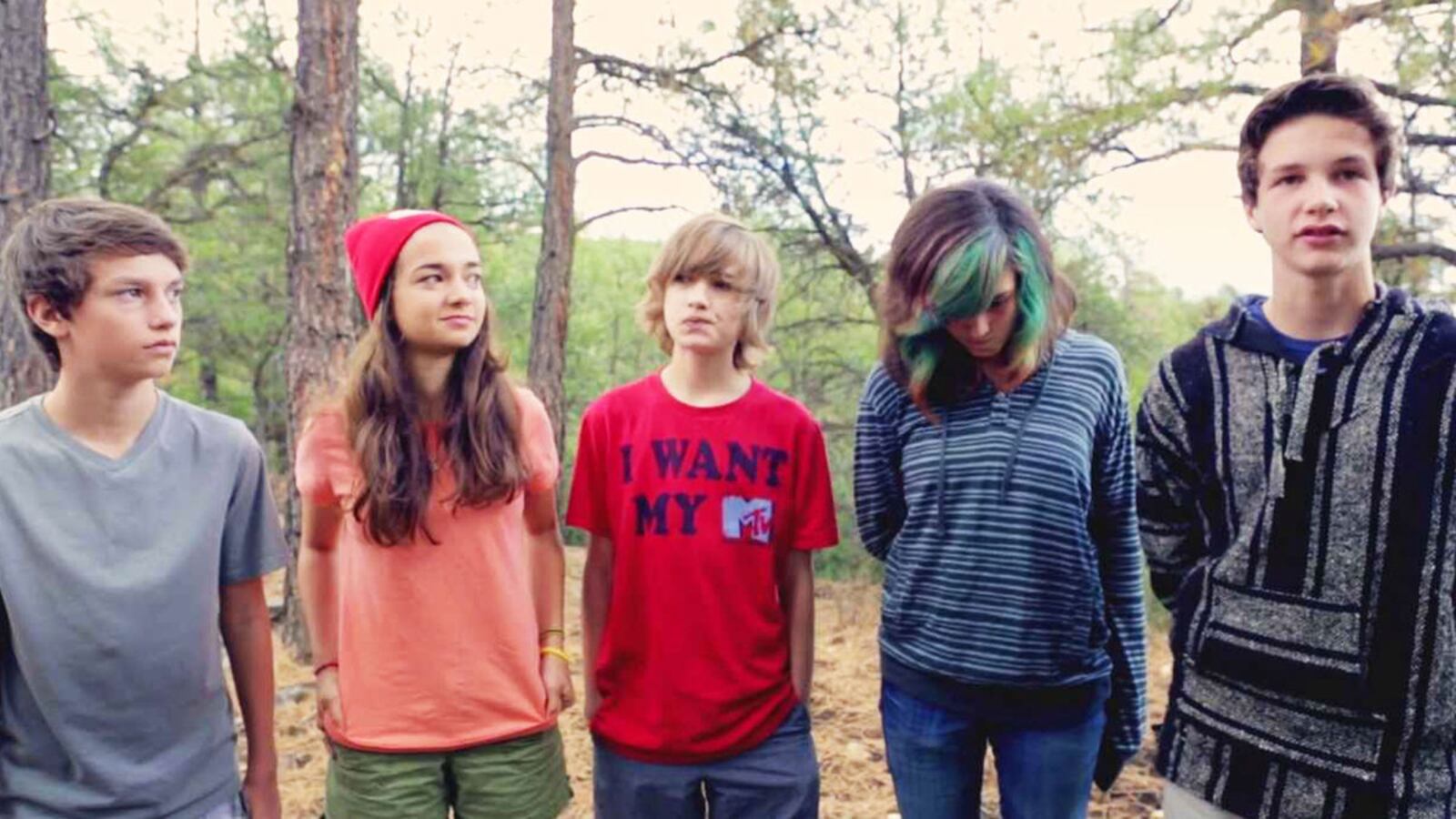This is a preview of our pop culture newsletter The Daily Beast’s Obsessed, written by senior entertainment reporter Kevin Fallon. To receive the full newsletter in your inbox each week, sign up for it here.
Donor 5114 is 6’1” tall. He’s of medium build with straight brown hair and brown eyes. His skin is slightly olive, and he tans easily. He has full lips. He’s naturally athletic; when he works out, he tends to see results quickly. “Optimistic” and “curious” are the two words he’d use to describe himself. Lying is his least favorite quality in other people.
His parents are both of German heritage. If he had to say, he’d venture that he’s more like his father, sharing his tunnel vision and focus. One thing he would do if he had more time and money is learn how to play an instrument. He’s picked up guitar a few times, but never stuck with it.
You don’t see Donor 5114 in Future People: The Family of Donor 5114. But also, you see him constantly, in the faces of the nearly two dozen of the 37 children who were conceived using his sperm. The oldest of them is now 23 and the youngest just 7, an unlikely family of strangers bonded by the donation this one man made while in his late-20s at a California cryobank in 1996.
Over the course of eight years, Future People tracks their wading through uncharted waters: using social media to meet and form meaningful relationships with the constellation of half-siblings spread all over the country, and then, as the oldest of them turn 18, grappling with how contacting 5114 might change their lives even further.
There are obvious reasons to be struck by the documentary, which premieres April 10 (National Siblings Day) on Discovery+.
In thrilling, endlessly fascinating ways that are at the same time precarious and perhaps even emotionally and psychologically traumatizing, we’re still discovering the impact that sperm donation has on the lives of people conceived through the process. These existential questions about identity and biology, thanks to the ease of connection through the internet and social media, are just starting to be answered.
The average number of offspring is 12-15 per donor. In the cases where, as with 5114, siblings have made the effort to reach out and meet each other, that amounts to countless family units that our society still doesn’t quite have the emotional language to describe.
It’s remarkable in Future People watching the siblings reunite over the years, listening to adolescents who grow into teenagers and then college-aged adults attempt to articulate their complicated thoughts about what it’s like to not know your biological father and the swirl of emotions when you finally meet other people who share your—and his—DNA.
There’s the trippiness of noticing that you all have the same lips, nose shape, and eyebrows; that some of you have picked up the same hobbies; that a group of you can intensely and intimately bond; but that you’re all also in different places when it comes to how you feel about these meet-ups and what is and isn’t missing from your own identity because of the anonymous donor.
Our fascination over what the world is like for the first generation of donor children as they go through adulthood has, as is our too-frequent cultural impulse, manifested in a focus on scandal. And those scandals are horrible, with cases in which fertility doctors lied and used their own sperm in order to spread their seed.
With all respect to the families who have had to endure the pain of that, it’s nice for there to be an exploration in pop culture that mines how, even if the procedure is executed with the normalcy everyone had planned, there is still so much to consider about the impact it has.
There’s a seeming obsession with TV series and films that center around the different ways families and connections are made. There are the Jon & Kate Plus 8’s and their descendants about raising multiple children.

Famous families from the Osbournes to the Kardashians have captivated us. Non-traditional units, ranging from The Girls Next Door in the Playboy mansion to Sister Wives, continually spike curiosity, not to mention the entire universe of 90 Day Fiancé programming raising questions of what matters when strangers are desperate to form a bond.
We’ve learned what happens when people stop being polite and start getting real. And then there is the idea of chosen family that has played out over the years, whether it’s the kids on Jersey Shore, the contestants on RuPaul’s Drag Race, or even the hot-and-cold friendships on the Real Housewives.
Yes, there is obviously an extreme interest in the wilder stories that put into sharp focus questions about identity, biology, nature, nurture, coincidence, and fate: Three Identical Strangers, for example, or The Imposter. But watching Future People distills all the extreme cases and out-there TV loglines to this simple commonality: People have an innate desire to know who they are and reach their full potential, so what connections can we seek out, biological or otherwise, to help us on that journey?
It’s an inherently emotional film, given the subject matter. In one heartbreaking scene, a group of siblings listen to a tape of 5114’s donor interview together, all reacting with dejection when, to the question of what he might want to say to the children conceived with his sperm, he only answers, “I wish them all luck.”
There was nothing more? Nothing more he wanted to say? I think that’s the part of this documentary, and this entire genre of programming, that becomes universal. We never really know ourselves, or our families. There always must be something more.





